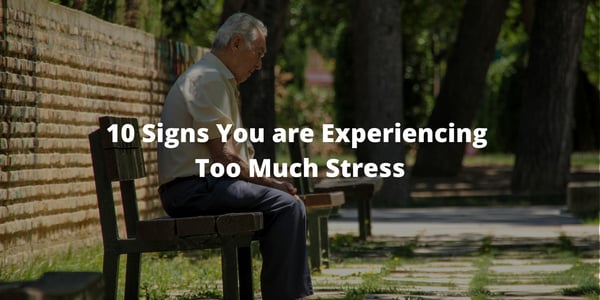Is there one among your friends who irritates you sometimes? They could be childhood buddies or a...
Warning Signs and Symptoms of Dehydration
Dehydration occurs when our bodies lose more fluids than we take in. It is a common condition that can be caused by various factors such as sweating, urinating excessively, or not drinking enough water. While mild dehydration can be treated by drinking fluids, severe dehydration can be a medical emergency. That's why it's crucial to recognize the warning signs and symptoms of dehydration early on. In this blog post, we'll discuss the common signs and symptoms of dehydration, the factors that can increase the risk of dehydration, and how to prevent and treat it. Whether you're an athlete, an outdoor enthusiast, or just someone who wants to stay healthy, this information can help you stay hydrated and prevent complications associated with dehydration.
First signs of dehydration
%20(1).jpg?width=300&name=pexels-cottonbro-4057753%20(1)%20(1).jpg) Symptoms of dehydration can first be felt in the body. You can be tired and lethargic. Having no energy when you have gotten enough sleep and food can be a sign of dehydration. Along with tiredness, you can feel dizzy, especially when getting up from sitting down.
Symptoms of dehydration can first be felt in the body. You can be tired and lethargic. Having no energy when you have gotten enough sleep and food can be a sign of dehydration. Along with tiredness, you can feel dizzy, especially when getting up from sitting down.
Other signs of dehydration that can be felt include dry mouth and thirst. If your mouth is dry and you cannot easily make any more saliva to fix it, then that means you are dehydrated. Sometimes we can also feel hungry when, really, we just need water and are experiencing dehydration.
You can also have issues with your urine. You might urinate a lot less, and your urine may also be dark yellow and smell strong. This is a common symptom of dehydration. Your urine should be as clear as water or slightly yellow if you are well-hydrated. This is why, when you urinate after waking up in the morning, your urine will be darker. You cannot drink any water in the 7-9 hours of sleep, so you will be dehydrated when you wake up. It is recommended that you drink a cup of water as soon as you wake to jumpstart the metabolism and get your body ready for the day.
Your lips, skin, and eyes can also become dry because of dehydration. If don't have sufficient water in your body to make more tears or moisture for your lips, that is a sign you are dehydrated and need to drink some water as soon as possible.
Prolonged Dehydration Symptoms
These symptoms will generally not cause you pain, but if prolonged any longer, they will cause harm.
As time goes on, you might experience headaches. This is another common symptom of dehydration. Your blood pressure might drop when you try to stand, as well. This can make you feel dizzy and fall or collapse if you are not careful.
A rapid heart rate and a fever could develop too. Your heart pumping faster is a result of the body not having proper nutrients, which makes it work harder to compensate for the lack of lubrication and nutrition.
Even more severe signs of dehydration include
- Vomiting
- Diarrhea
- Weakness
- Fever
- Chest pain
- Fainting
- Seizures
How to Treat Dehydration
Now that you know the signs, you should know what to do when you get these symptoms of dehydration.
Dehydration is simply not having enough fluid to maintain a healthy state. If you are experiencing minor symptoms of dehydration like less urination, dry mouth, and dry throat, try to better manage your intake of water over time. For example, drinking water more frequently in smaller amounts can help you drink more water overall. Another method of getting more water is eating more fruit and vegetables. Fruits are made of mostly water, so they are great for getting more water in.
If you have more severe signs of dehydration, then you should still consume lesser amounts of water over time. Consider setting an alarm for every thirty minutes to drink a certain amount of water, or you can have an accountability partner such as your spouse or a friend remind you to drink water. With more severe signs of dehydration, you need to consume things that can replace lost nutrients, such as sports drinks and carb and electrolyte-containing drinks. Sucking on popsicles and ice pieces can also help.
Heat-Related Dehydration
.jpg?width=300&name=two-g712cc87df_640%20(1).jpg) If you have dehydration because of the heat, then cooling down will be important as well. If this is the case, you need to remove excess clothing, get into an air-conditioned area if possible. If not, find shade or the coolest are available. Do anything you can to cool the person down, but you must not expose the person to colder than normal things such as ice and ice water. You should not do this because blood vessels can constrict and decrease the potential for heat loss. Shivering is also possible, which would increase body temperature and make the symptoms of dehydration worse.
If you have dehydration because of the heat, then cooling down will be important as well. If this is the case, you need to remove excess clothing, get into an air-conditioned area if possible. If not, find shade or the coolest are available. Do anything you can to cool the person down, but you must not expose the person to colder than normal things such as ice and ice water. You should not do this because blood vessels can constrict and decrease the potential for heat loss. Shivering is also possible, which would increase body temperature and make the symptoms of dehydration worse.
Doctors will do the same thing by replacing lost fluid and electrolytes, treating any life-threatening symptoms, and then cooling the body with fans and cooling blankets. Lost fluids can be replenished simply by drinking water with electrolytes. If severe dehydration is diagnosed, then fluids are given through an IV.
The bottom line is that there are many symptoms of dehydration but are all solved by replacing lost fluids through drinking water with carbohydrates or electrolytes in it. If dehydration is caused by high temperatures, you must cool down the body in any way possible after drinking more water. So, make sure that you do what is appropriate for the signs you see and seek medical attention if you start experiencing dizziness, headaches, a faster heart rate, and low blood pressure when standing up.
Want to learn more about how to keep your body hydrated? Check out our post: Helpful Hydration Tips and 8 Reasons to Drink More Water!






